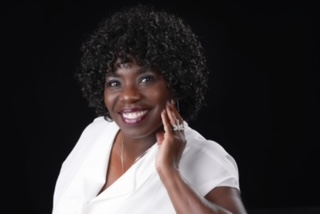Liberia, like many other African counties, has suffered setbacks in the fight against COVID-19 as thousands of its citizens continue to doubt the existence of the virus and accused officials of plotting to extort money from foreign donors. An increase in funds and supplies from foreign governments, philanthropists, and international partners, has caused many Liberians to suggest that COVID-19 presents new opportunities for corruption and misuse of public funds by public officials.
With the erosion of public trust and confidence in the Government of Liberia (GOL) due to prolonged lack of access to basic social services, including healthcare, getting vaccinated continues to be an uphill battle. In fact, the increase in vaccine hesitancy can be attributed to the lack of information, especially in a country with a high illiteracy rate. Throughout the vaccination process, there was a general lack of communication and information flow to the public about the vaccine, timelines, and expiration dates. “The lack of information from official sources is one of the major reasons for mistrust between citizens and their government”, said Maureen Sieh, a communication specialist.
Sieh said public health officials encouraged fake news and rumors when they failed to effectively provide relevant information about the vaccination campaign to Liberians. Adding that though many Liberians in this high-illiteracy rate population have android phones, which give them access to the internet, they cannot search Google to learn about these vaccines; they are depending on their government to give them the right information so as not to rely on faked news and rumors
“You have to do more than say get vaccinated. Liberia has a high illiteracy rate. You have to break things down for people in a way they can understand.” GOL has to “beef up the awareness, engage citizens, do jingles, provide updates several times a week or share information so that people are not guessing or listening to rumors” Sieh continues.
She believes when the vaccine arrived, they should have told people about expiration dates, so people could plan. There was no major vaccination campaign and awareness outreach like what is done for childhood communicable diseases.

“Owing to our history with outbreaks, particularly Ebola, it is thought that comprehensive community engagement is key to getting community buy-in. But with the COVID19 vaccine, none of these existing structures or gate-keepers of our community were engaged sufficiently to get their buy-in as such,” Joyce Kilikpo Executive Director Public Health Initiative (PHI) stated.
Kilikpo expressed that prior to the launch of the vaccine in Liberia, there was little or no involvement of civil society actors, media, and religious communities. She continued by saying in this information age, where many have access to the internet and believe any information from the internet without verifying its authenticity, there was not enough publicity on the vaccine and the Government of Liberia needed to do more. “The publicity needs to go beyond Public Service Announcement.” She stated.
It took almost four weeks from the arrival in Monrovia for a shipment of 96,000 doses of the AstraZeneca jab via the Covax vaccine sharing initiative before the first shot could go into an arm. This raised lots of concerns amongst Liberians, but health authorities blamed the reasons for the delay on widespread suspicion surrounding the vaccine, exacerbated by reports of blood clots amongst AstraZeneca recipients in several European countries.
“Right after we received the vaccine, the news came out about the clots,” Liberia’s Health Minister, Dr. Wilhelmina Jallah, told reporters at the official launch of the vaccines. “So, we delayed, pending the result of the investigation.” But even after the launch of the vaccines, concerns arose about the safety of the AstraZeneca vaccine. A vox-pop conducted amongst ordinary Liberians between April and May found that hesitancy and mistrust surrounding COVID-19, with just one in ten respondents saying they would volunteer to be vaccinated.
With low confidence in the government, and Liberians stating they didn’t trust the government to ensure the safety of the vaccine before offering it to citizens, the issue of social media parading with fake news added flame to the fire.
“I’m worried about Covid but the vaccine is not correct,” says Marie Wleh, as she mashed pepper into a silver bowl outside her family home on the outskirts of Paynesville.
“We’re hearing around town that poor people can die when they take it, so I’m afraid to take this one,” agrees Mr. Samuel Moore, a tailor and father of four, who says he knew of five people, including his sister-in-law, who died after taking part in an Ebola vaccine trial following the 2014-16 West African Ebola epidemic.
“People are sending videos from America saying they want to decrease the world’s population through the vaccine,” says 36-year-old hairdresser Tracy Gray, standing in the doorway of her one-room salon in Kakat, Margibi County. “I have seen five videos. I will not vaccinate myself or my family.”
It was clear that Ms. Gray had no concerns about a recent infection rate of COVID-19 on the Liberian population.
Meanwhile, another group of Liberians interviewed by FunTimes Magazine said they considered prayer to be more effective than vaccination against COVID-19. They believed that Liberia has wronged the Almighty God and must pray and fast to ask for God’s forgiveness so as to heal their land.

Kilikpo believes that public trust can be built in the efficacy of the vaccine by leveraging the relationship between the public and the religious community “The government needs to include the religious community, that is what it has been before and I don’t understand why they are yet to use such influential and important platform or stakeholders. As it stands, there are some people within the Christian community that believe that the vaccine is a mark of the beast or part of things for the end time. If the Ministry of Health and partners had earlier on engaged with the religious community, such myths or misinformation would be minimized or would be addressed immediately.”
She proposed that the government need a robust media approach that would look at engaging both traditional and social media. Strengthening the media and civil society organizations capacity, and engaging grassroots organizations as well as religious leaders to work at sensitizing their communities with the right information. The Government needs to establish a call center to address misinformation and share real-time development on information and communication materials.
“Vaccination is the surest public health measure that will ensure we defeat COVID19. We need equitable access to vaccines; we need a more robust communication and campaign to get an increase for vaccine participants. We need to enhance the risk and communication engagement pillars to ensure they are up to the task and are functional,” she concluded.
Meanwhile, Dr. Jallah said the government is speaking to church leaders and conducting community focus group discussions as well as using the media to encourage citizens to receive the vaccine.
“When it comes to the vaccine, I don’t want to fix what’s not broken,” says a public servant in his 40s, who wished to remain anonymous. “There’s no sign of Covid here, even with all the crowds we see at banks and marketplaces. It shows me the whole issue might not be real. So what’s the essence of taking the vaccine if I don’t feel safe with it?” he said.
In March, the World Health Organization (WHO) said that “the benefits of the AstraZeneca vaccine outweigh its risks” and recommended, “that vaccinations continue”. Two weeks later, the GOL gave the green light for vaccination to begin in April. At that time, Liberia has seen just over 2,000 official cases of COVID-19 and 85 deaths, making it is easy to understand why Liberia has found it hard to muster a lot of enthusiasm to raise awareness for people to take the COVID-19 vaccine.
The absence of President George Manneh Weah from the launch of the vaccines has authenticated the fears and rumors surrounding the vaccines. “I would love to first see our officials of the government taking it, right up to the president, then I will have the confidence to take it, and if we die, we all die together!” says a 29-year-old peanut seller in downtown Monrovia.
For her part, Dr. Jallah says she thinks the president “will come round” and eventually have the jab. “Because it’s an individual and voluntary thing, I think we should give him his space and let him decide and come out for himself.” But President Weah’s apparent reluctance to be vaccinated is likely magnifying the public fear.
In early June, Liberia experienced a sharp increase in new infections and deaths amid the discovery of the Delta variant of the deadly virus. Liberians were trooping to various health facilities and the Ministry of Health for vaccination against the coronavirus.
The Delta variant, formerly known as B.1.617.2, is believed to be the most transmissible variant yet, spreading more easily than both the original strain of the virus and the Alpha variant first identified in Britain.

Over the past days, huge numbers of people, both young and old were seen trooping into the Ministry of Health in Congo Town to get the first shot of the vaccines. Although everyone was seen wearing a mask, the social distancing rule was being blatantly ignored. People could be seen crammed in endless queues as early as 5:00 am, with some waiting for hours before getting the vaccine.
“I came here this morning to get my vaccine, but I have been here for hours and I have not taken it. Hope by 12 O’clock, because I have to go to work, I will get it,” a lady identified as Sally Junes said.
Liberians complained that the Ministry of Health was not handling the vaccination process in line with its own health protocols it announced.
“This is just a mockery the health officials are making out of us. You can’t see police officers line up all in the streets enforcing the health protocols, and you come right here at the Health Ministry and see it is being violated with people cramped up in line for a vaccination. They should be the one to set the example, but this shows they are not in charge.” A young man waiting to get vaccinated said.
When contacted, officials at the Ministry blamed the huge crowd showing up in the wake of the third wave of the virus on the sluggish behavior of Liberians and were quick to say that measures have been put in place to reduce the large gathering of people at the Ministry.
“Before the vaccines arrived, there was massive public awareness throughout and during the vaccination process but some people stayed away. Also, the myth and misinformation made people stay away. Now they are coming in huge numbers. That’s why the lines are long. But we are decentralizing the process. That’s why there are several queues at the Ministry,” said Felecia Gbesioh, the director of communications at the Ministry of Health.
Recently, the U.S. Centers for Disease Control (CDC) raised Liberia’s travel alert to level 4, indicating that the country is highly unsafe for inbound travelers. On its website, the CDC admonished U.S. citizens and other travelers to avoid making a trip to Liberia or they’re required to be fully vaccinated before traveling, “because of the current situation in Liberia, even fully vaccinated travelers may be at risk for getting and spreading COVID-19 variants.”
According to the National Public Health Institute of Liberia (NPHIL) updates, Liberia recorded 5,396 cases, 148 deaths, and 2,715 recovered from COVID-19.
Liberia received 96,000 doses of AstraZeneca vaccine for its population of 4.5 million people. As of July 20, 2021, 95,423 people (including 18,921 health workers and 66,211 others) had been vaccinated. Of that total amount, 6,439 people have received their second shot.
This article is made possible by Resolve Philly.






